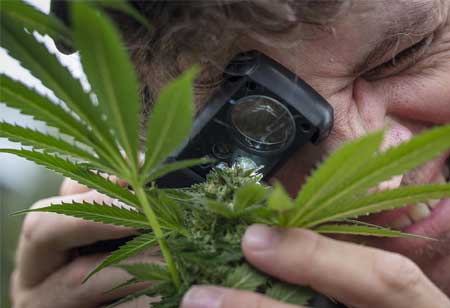

Thank you for Subscribing to Cannabis Business Insights Weekly Brief

In the ever-evolving landscape of healthcare in the United States, the conversation around recreational cannabis has taken center stage. As an experienced professional in the healthcare industry, it is crucial to explore the intricate relationship between recreational cannabis use and its potential effects on individual health.
Understanding Recreational Cannabis:
Recreational cannabis, often referred to as adult-use cannabis, involves the non-medicinal consumption of the cannabis plant for leisure and enjoyment. With the shifting legal frameworks across various states, the accessibility and acceptance of recreational cannabis have grown, prompting a closer examination of its impact on public health.
The Science Behind Cannabis:
Cannabis contains numerous chemical compounds, with THC (tetrahydrocannabinol) and CBD (cannabidiol) being the most well-known. THC is primarily responsible for the psychoactive effects, while CBD is associated with potential therapeutic benefits. Understanding the interplay between these compounds is essential for assessing the health implications of recreational cannabis use.
Health Benefits and Risks:
Proponents of recreational cannabis often highlight its potential health benefits, including stress relief, pain management, and even potential mood enhancement. However, it is equally important to acknowledge the associated risks. Long-term and heavy use of cannabis has been linked to cognitive impairment, respiratory issues, and mental health challenges.
Impact on Mental Health:
One area of significant concern is the potential impact of recreational cannabis on mental health. While some individuals may experience relaxation and stress reduction, others may be susceptible to anxiety, paranoia, or exacerbation of underlying mental health conditions. Striking a balance between responsible use and potential risks is crucial.
Legalization and Regulation:
The legalization of recreational cannabis in various states has led to the establishment of regulatory frameworks to govern its production, distribution, and consumption. Robust regulation is essential to ensure product safety, potency standards, and the prevention of illicit market activities. Healthcare professionals play a pivotal role in educating the public about responsible use and potential risks.
Healthcare Practitioners' Role:
As healthcare practitioners, our responsibility extends beyond traditional medical interventions. It is imperative to engage in open and non-judgmental conversations with patients about their cannabis use, offering guidance on responsible consumption and providing resources for those seeking support or information.
Public Health Education:
A proactive approach to public health education is vital in the context of recreational cannabis. Dispelling myths, fostering informed decision-making, and promoting harm reduction strategies contribute to a more comprehensive understanding of the potential benefits and risks associated with recreational cannabis use.
Conclusion:
In navigating the complex terrain of recreational cannabis, healthcare professionals must embrace a holistic perspective that acknowledges both the potential benefits and risks. As we move forward, it is essential to engage in ongoing research, foster open dialogues, and provide evidence-based guidance to ensure the well-being of individuals in an era where recreational cannabis is becoming an increasingly prevalent aspect of our society.
I agree We use cookies on this website to enhance your user experience. By clicking any link on this page you are giving your consent for us to set cookies. More info